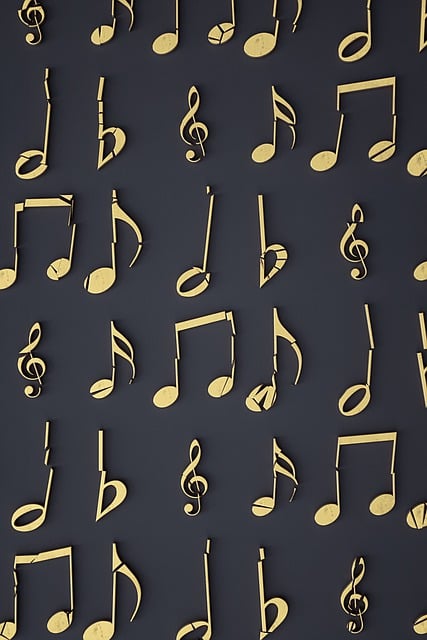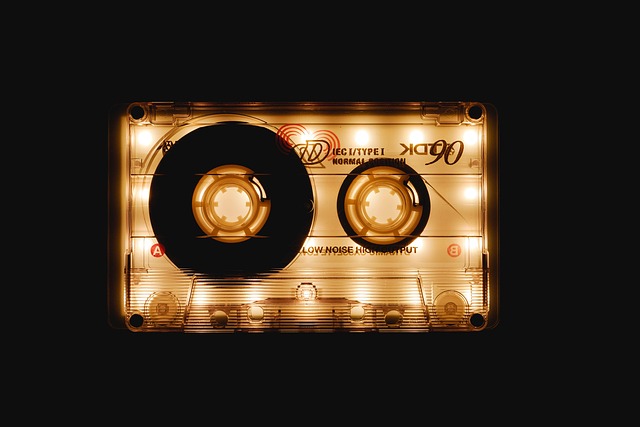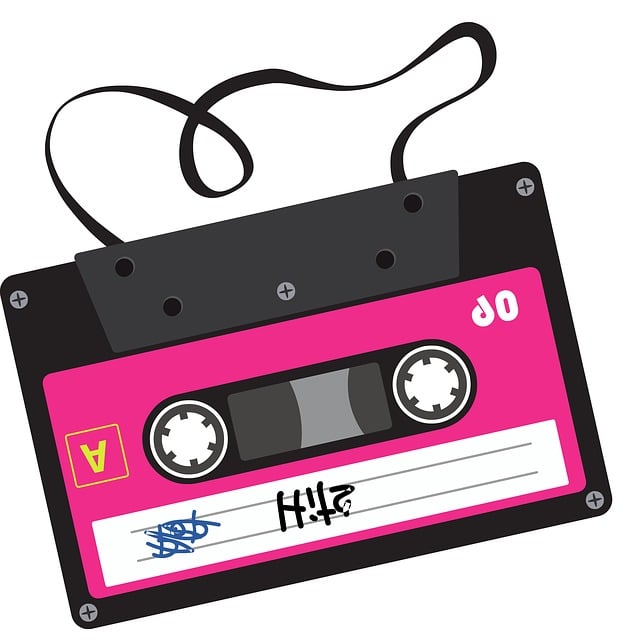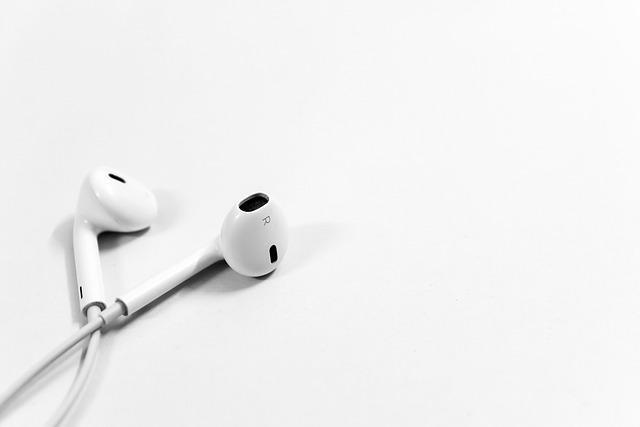AI music tools have revolutionized creativity for ai musicians, enabling them to streamline workflows, explore diverse sonic landscapes, and push artistic boundaries. These tools, through melody generation, harmony creation, and track mixing/mastering, democratize music production globally. By leveraging AI, both professionals and emerging artists can collaborate with intelligent systems to compose unique sounds and save time, fostering inspiration and innovation. However, the integration of AI in music also raises ethical concerns about ownership and copyright, particularly as ai musicians gain popularity. Examples range from award-winning soundtracks to virtual bands, showcasing the transformative potential of AI in the industry while highlighting the need for balanced ethical guidelines.
“Unleash your creativity with AI music tools—the new frontier for musicians and producers. In this comprehensive blog, we explore the transformative power of artificial intelligence in music creation. From understanding the basics to delving into advanced applications, we guide you through the benefits, techniques, and real-world success stories of AI musicians. Discover how AI assists composition, enhances sound design, navigates ethical considerations, and redefines music production. Dive into this revolutionary world and unlock your musical potential with AI.”
- Understanding AI Music Tools: A New Frontier for Musicians
- The Benefits of Using Artificial Intelligence in Music Production
- Exploring AI-Powered Composition and Songwriting Assistants
- How AI Can Enhance Sound Design and Mixing for Music Producers
- Ethical Considerations: Ownership, Plagiarism, and the Future of AI Music
- Real-World Applications: Success Stories of AI Musicians and Their Creations
Understanding AI Music Tools: A New Frontier for Musicians

Artificial Intelligence (AI) music tools have opened a new frontier for ai musicians, transforming the way they create and produce music. These innovative technologies offer an array of capabilities, from generating melodies and harmonies to mixing and mastering tracks. AI algorithms can analyze vast musical datasets, learn patterns, and even imitate specific styles, providing musicians with a powerful creative partner.
By leveraging AI music tools, ai musicians can streamline their workflows, explore new sonic landscapes, and push artistic boundaries. These tools democratize music production, making it accessible to a wider range of creators. With AI, independent artists can now compete on a global stage, crafting high-quality music without the need for extensive resources or studio experience.
The Benefits of Using Artificial Intelligence in Music Production

Using artificial intelligence (AI) in music production offers a plethora of benefits for both seasoned professionals and aspiring AI musicians. One of its most significant advantages is the ability to streamline creative processes. AI tools can generate unique and diverse musical compositions, offer personalized recommendations, and even emulate various artistic styles, thereby inspiring and assisting musicians throughout their creative journeys.
These intelligent systems are designed to analyze vast amounts of data from existing music libraries, allowing them to compose, arrange, and mix tracks with remarkable precision. This not only saves time but also opens doors for experimentation and innovation. AI musicians can collaborate with these tools to create one-of-a-kind sounds, pushing the boundaries of what’s possible in modern music production.
Exploring AI-Powered Composition and Songwriting Assistants

AI-powered composition and songwriting assistants are revolutionizing the music industry, offering a new world of possibilities for both amateur and professional ai musicians. These tools use advanced algorithms to generate melodies, harmonies, and even entire songs, providing a creative spark for artists looking to overcome writer’s block or explore innovative sounds. By analyzing vast datasets of existing music, AI models can learn and mimic various genres and styles, enabling users to collaborate with these virtual assistants to create unique compositions.
One of the key benefits of these tools is their ability to streamline the songwriting process. Musicians can input parameters like desired mood, tempo, or even specific instruments, and the AI will generate a range of musical ideas tailored to those criteria. This not only saves time but also opens doors for musicians to experiment with diverse musical landscapes, pushing the boundaries of what’s possible in modern music production.
How AI Can Enhance Sound Design and Mixing for Music Producers

AI is revolutionizing sound design and mixing for music producers, offering unprecedented creative possibilities. By leveraging machine learning algorithms, AI tools can analyze vast audio datasets to generate novel sounds, enhance existing ones, and optimize mixing processes. These tools learn from diverse musical styles and cultural influences, enabling them to produce unique and nuanced effects that were once time-consuming or impossible to achieve manually.
For example, AI musicians can assist in creating immersive atmospheres, designing complex soundscapes, and even generating custom drum patterns tailored to specific genres. They can automate repetitive tasks like noise reduction and EQing, freeing up producers to focus on high-level creative decisions. Furthermore, AI’s ability to process vast amounts of data in real time allows for instant feedback and experimentation, accelerating the production workflow and fostering innovative musical expressions.
Ethical Considerations: Ownership, Plagiarism, and the Future of AI Music

The rise of AI music tools has opened a new world of possibilities for musicians and producers, offering innovative ways to create and enhance their compositions. However, as we venture into this uncharted territory, it’s crucial to navigate through the ethical landscape that emerges alongside these powerful technologies. One of the primary concerns is ownership and copyright; with AI generating music, who owns the rights to these creations? As AI musicians become more prevalent, establishing guidelines and legal frameworks for intellectual property becomes essential to protect both creators and users.
Plagiarism is another critical issue. While AI models learn from existing music, they may inadvertently reproduce or mimic specific compositions. This raises questions about consent and credit when using pre-existing data to train these models. As the field of AI music evolves, musicians and developers must collaborate to establish best practices that foster creativity while respecting original works and artists’ rights. The future of AI music lies in striking a balance between innovation and ethical responsibility.
Real-World Applications: Success Stories of AI Musicians and Their Creations

AI musicians are pushing boundaries and creating captivating sounds in the music industry. From composing entire tracks to generating unique instrumentals, these intelligent tools have become indispensable for many artists. One notable success story involves a renowned composer who utilized AI technology to craft an award-winning soundtrack for an independent film. The AI assisted in generating emotional themes, saving the musician countless hours of composition and allowing them to focus on refining the score.
Another fascinating example is a group of emerging artists who formed a virtual band, entirely powered by AI. They created a diverse catalog of music, blending genres and styles seamlessly. This collective demonstrated that AI musicians can not only mimic human creativity but also merge and innovate, resulting in fresh and inspiring musical outputs that resonate with audiences worldwide.
In conclusion, AI music tools are transforming the creative landscape for both musicians and producers, offering unprecedented opportunities for innovation. From enhancing composition and sound design to navigating ethical considerations, this blog has explored the multifaceted world of AI in music production. As we look ahead, the potential for AI musicians to push artistic boundaries while addressing ownership and plagiarism concerns is undeniable. Real-world applications continue to inspire, demonstrating that AI is not just the future but the present of musical expression.
